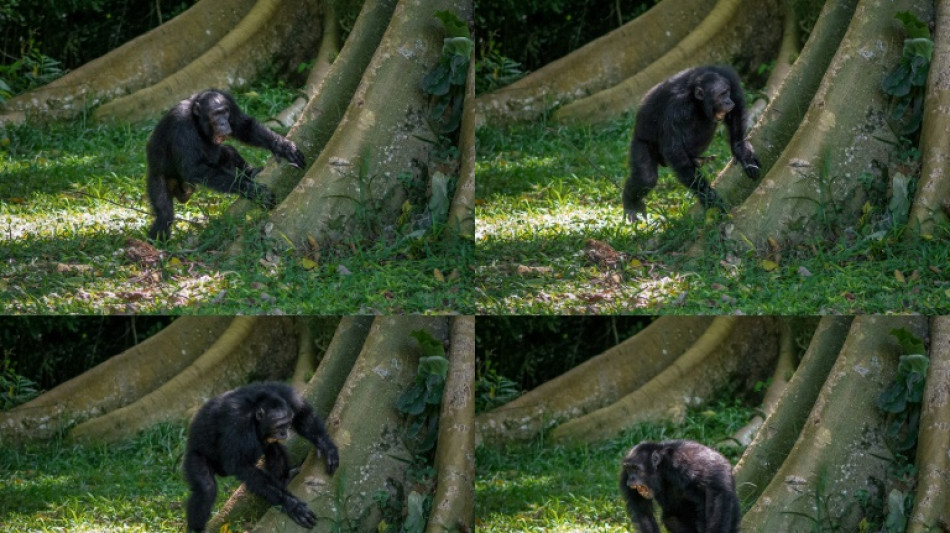
RBGPF
1.3800

Out west, they groove with fast, evenly spaced beats. In the east, it's more free-form and fluid.
Like humans, chimpanzees drum with distinct rhythms -- and two subspecies living on opposite sides of Africa have their own signature styles, according to a study published Friday in Current Biology.
The idea that ape drumming might hold clues to the origins of human musicality has long fascinated scientists, but collecting enough clean data amid the cacophony of the jungle had, until now, proven elusive.
"Finally we've been able to quantify that chimps drum rhythmically -- they don't just randomly drum," lead author Vesta Eleuteri of the University of Vienna told AFP.
The findings lend fresh weight to the theory that the raw ingredients of human music were present before our evolutionary split from chimpanzees six million years ago.
Previous work showed chimpanzees pound the huge flared buttress roots of rainforest trees to broadcast low‑frequency booms through dense foliage. Scientists believe these rhythmic signals help transmit information across both short and long distances.
For the new study, Eleuteri and colleagues -- including senior authors Catherine Hobaiter of the University of St. Andrews in the UK and Andrea Ravignani of Sapienza University in Rome -- compiled more than a century's worth of observational data.
After cutting through the noise, the team focused on 371 high-quality drumming bouts recorded from 11 chimpanzee communities across six populations living in both rainforest and savannah-woodland habitats across eastern and western Africa.
Their analysis showed that chimpanzees drum with definitive rhythmic intent -- the timing of their strikes is not random.
Distinct differences also emerged between subspecies: western chimpanzees tended to produce more evenly timed beats, while eastern chimpanzees more frequently alternated between shorter and longer intervals.
Western chimps also drummed more frequently, kept a quicker tempo, and began drumming earlier in their signature chimp calls, made up of rapid pants and hoots.
The researchers do not yet know what is driving the differences -- but they propose that it might signify differences in social dynamics.
The western chimps' faster, predictable pulse might promote or be evidence of greater social cohesion, the authors argue, noting that western groups are generally less aggressive toward outsiders.
By contrast, the eastern apes' variable rhythms could carry extra nuance -- handy for locating or signalling companions when their parties are more widely dispersed.
Next, Hobaiter says she would like to study the data further to understand whether there are intergenerational differences between rhythms within the same groups.
"Music is not only a difference between different musical styles, but a musical style like rock or jazz, is itself going to evolve over time," she said.
"We're actually going to have to find a way to tease apart group and intergenerational differences to get at that question of whether or not it is socially learned," she said.
"Do you have one guy that comes in with a new style and the next generation picks it up?"
U.Siddiqui--DT